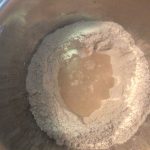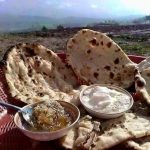Kamali is made usually each day from fresh, stoneground wholegrains, wheat, barley, buckwheat and millet. By using wholegrains especially whole wheat you maintain all the fibre, wheatgerm, and natural oils, that today’s refined flours do not contain.
There are many varieties of unleavened breads, chapattis being the most popular. Kamali can be stored in a cool dry spot for two or three days.







